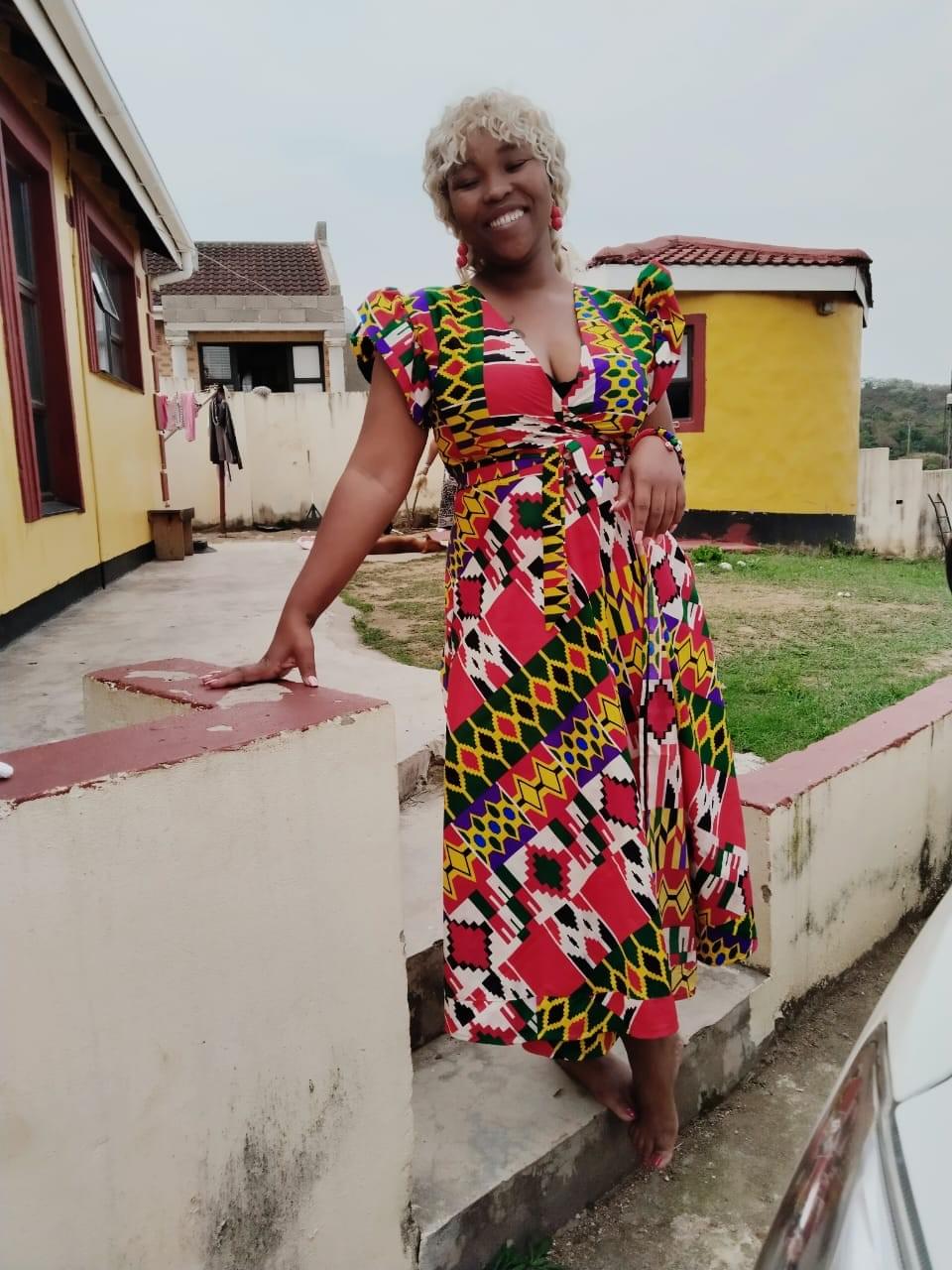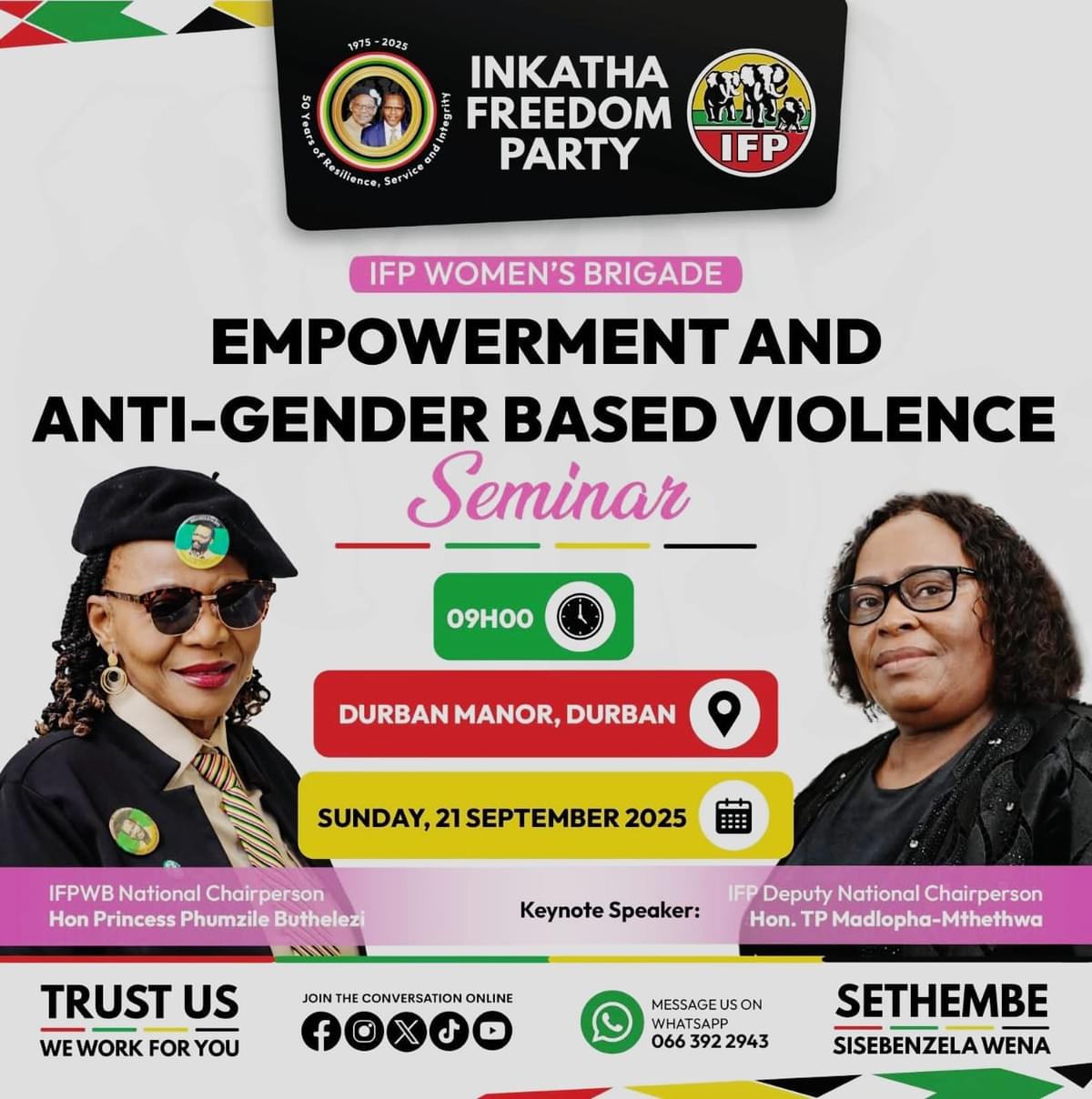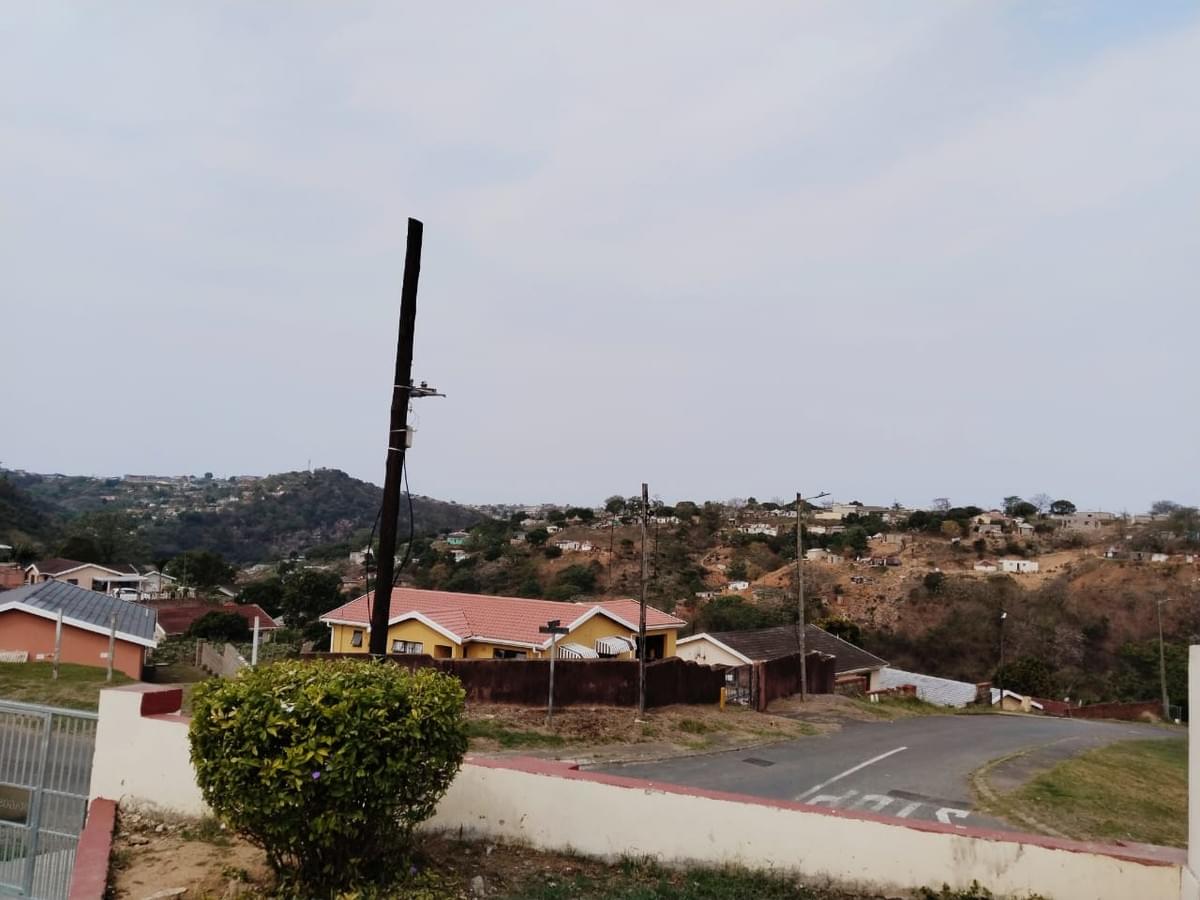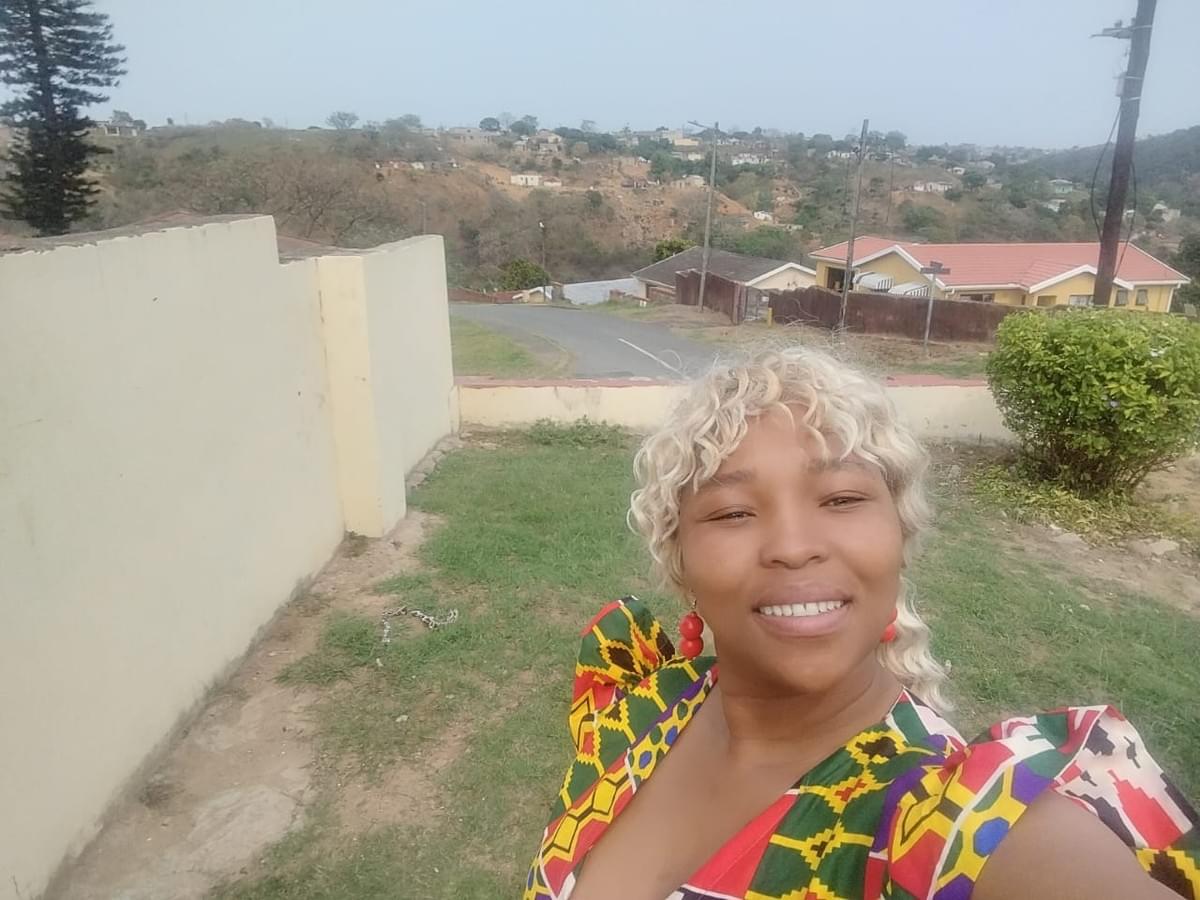
Sometimes you plan your weekend down to the finest detail — your outfit, your talking points, even the weight of the documents you’ll carry in your bag — only for life, spirit, and ancestors to laugh and hand you an entirely different script.
That is what happened to me when I set out for Durban to attend the IFP Women’s Brigade gathering on gender-based violence and women’s empowerment.
I travelled with purpose. This was a forum I wanted to be part of. As someone who works every day in the fight against GBV and child sexual violence, I knew it was a space where my contribution would matter.
I carried the National Strategic Plan like I always do — a document born out of the hard labour of more than 400 organisations and a blueprint for how we respond to GBV as a nation.
I carried my experiences from SADC barometer launches on Women's Political Particcipation, which I had an opportunity to attend both in Zimbabwe (2024) and Madagascar(2025), where we measured the realities of women in politics, leadership, and the violence they still face. I carried my fellowship journey as a WOSSO graduate, my identity as a survivor, and the work of the award-winning GBVF focused organisation I run. I came ready to show up.
But Durban had other plans.

I arrived on Saturday evening, thinking Sunday morning would find me seated among women in amaphinifa, exchanging ideas and strategising on justice. Instead, Saturday night delivered an excruciating pain that refused to let me sleep. The night became a battlefield of nightmares and restless prayers.
By Sunday morning, I called my driver Mzwandile, admitting I couldn’t carry on like this. He came — steady and loyal as always — and we drove around Durban searching for relief. At one point, we passed the IFP offices, where women stood proudly in their amaphinifa. I was wearing mine too, determined to still make it somehow. But my steps were heavy, my body uncooperative, and the city itself seemed to nudge me in another direction.
That direction was Umlazi. I had never been there before. Yet it became clear this was where I was meant to be. I was led to a spiritual counsellor who, before I could say a word, told me plainly: “Forget about the event. You didn’t come here for that. You came here for this.”
In that moment, I felt my ancestors and God speaking through her. This was no accident. It was orchestrated. All the sleeplessness since Madagascar, all the unease I had brushed aside — it had led to this point.

So I spent the day in Umlazi instead of at the forum. I missed the speeches, the applause, and the chance to raise my hand with a contribution. But what I gained was spiritual tending that I did not know I needed. I was reminded that I am not just an activist — I am a spiritually gifted woman whose path is guided, sometimes with a gentle nudge and sometimes with a forceful redirection. Durban, through the wisdom of my ancestors and God, chose rest and healing for me that day.
Of course, the irony did not escape me. The woman who always shows up for survivors, who carries policy documents in her bag like prayer beads, who prepares lines as sharp as knives for forums, suddenly couldn’t show up at all.
It is almost hilarious, isn’t it? The queen of women's rights and GBV activism, outplayed by her own body and spirit. But there’s a lesson in that comedy: even warriors need to pause. Survival itself is a strategy, and sometimes the fight is not in the hall but in the quiet act of being cared for.
Driving through Durban later, I saw more women in their amaphinifa, walking with unity and strength. I too was in mine, though moving slowly, still sore but smiling. Their presence comforted me. I knew then that I had not failed; I had simply been re-routed. My presence in Umlazi was not absence from the movement — it was another form of showing up, this time for myself.

And let me be clear: missing that event does not erase who I am or what I bring. I am still the WOSSO fellow who represents the Global South. I am still the activist who has stood in SADC spaces, contributing to barometer findings. I am still the survivor leading an award-winning organisation that trains community based paralegals, supports children through brutal courts, and demands accountability in every corner of South Africa. That weekend did not reduce me. It reminded me that activism without rest and spiritual grounding cannot sustain itself.
Looking back, I can laugh — and I do. Durban tried to hand me a podium, and my ancestors handed me a bench instead. And I sat, I prayed, I healed. That too is part of the journey. Because activism is not about ticking attendance lists; it is about ensuring that the activist remains alive, whole, and ready to continue.
So I missed the forum, but I did not miss the message. Durban had other plans, and I honour them. When next I walk into such spaces, I will arrive with my phinifa pressed, my NSP in hand, my humour intact, and my spirit well.
And I will carry with me the reminder that sometimes the most important fight is the one that keeps the fighter alive.

